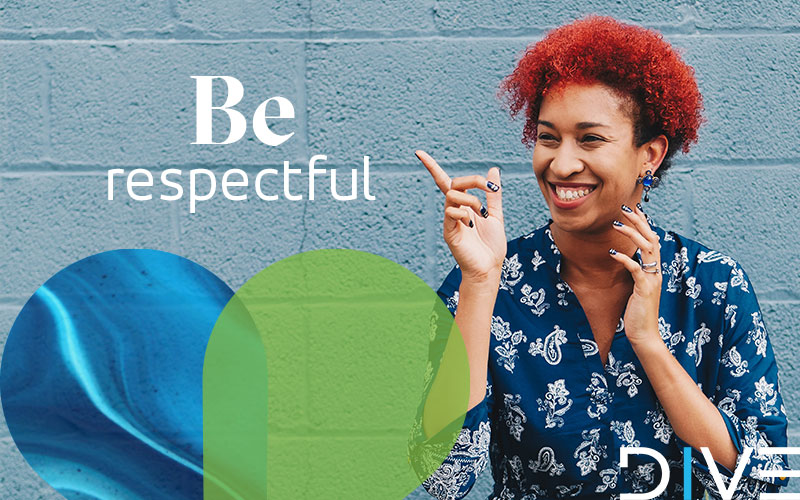Our perceptions in life maneuver our decisions, guide our ideologies and regulate our sense of morality and ethics. When these viewpoints, however, are clouded by the subtle layer of unconscious bias, our best-intentioned opinions become dangerous and disrespectful stereotypes about the people around us.
Without a doubt, unconscious bias seems like a natural phenomenon. From one’s accent, culture, race, gender, body size, ethnicity, and country of origin, to the choice of one’s words or the tone of one’s skin; the person in front of us is completely vulnerable at the hands of our mind’s hyperactive judgmental machinery. We are all guilty of jumping to conclusions about another’s efficacy, determination, and work ethic simply by what our eyes see or our ears hear. When these perceptions remain unchecked and uncontrolled, it plays devastating effects on those on the receiving end of the comments – be they people or organizations. From hiring decisions to salary hikes to career advances, a leader’s unconscious bias can play a pivotal role in developing interpersonal tension, stress, peer pressure, and discrimination.
Moving to the United States in the late 1990s, there have been times where I have tasted the bitter side of unconscious bias. This has ranged from being overlooked for career advancement to negative stereotypes to magnifying mistakes to reinforcing a point about my weaknesses.
From my personal experience, however, the key to eliminating such stereotypes comes from recognizing the inherent and intrinsic deficiencies in our thinking. The first step is to identify some of the common biases within ourselves:
- Affinity bias: when we as managers seek out a candidate who culturally ‘fits in’ with our department or organization. How similar they are to other team members can play a critical role in defining their career advancement and growth in the organization.
- Confirmation bias: when we form opinions – either positive or negative – about the candidate based on attributes such as race, name, religion or origin, language, school, etc. It becomes easy and almost subconscious for us to find patterns and create stereotypes to arrive at conclusions about others’ work ethic and potential for success.
- Attribution bias: when we quickly judge someone and falsely assume things without knowing the full story, or not asking clarifying questions to confirm our understanding.
Having understood some of the common biases, how can we overcome them? By practicing empathy and mindfulness!
Empathy and mindfulness are the greatest transformational tools for addressing unconscious bias and building trust among people of different backgrounds. Truly, I’m excited that Blue Yonder has now placed empathy as its fourth Core Value. Shouldn’t this mean that it will be seamless for us to combat unconscious bias? Not really! Empathy and mindfulness are learned skills and require practice and frequent doses of self-observation and self-awareness. From my experience, there are certain actions we can take to enable ourselves to be more empathetic and mindful. For example:
- When we practice mindfulness we are making sure we are always aware of ourselves through observation of our thoughts and feelings. The unconscious mind is full of biases; paying attention to our thoughts and feelings in a non-judgmental way and focusing on the present will help us to create a space of self-awareness between our emotional stimulus and response.
- Practicing 15 minutes of mindfulness (especially in a group setting) every day helps us to become more self-aware and this self-awareness allows us to dramatically reduce our unconscious biases. There are several free mobile apps that can help you practice mindfulness.
- Being mindful of our thoughts and behaviors, the next step is to postpone our judgment and put ourselves in others’ shoes. Emotionally connecting this way helps us go beyond the boundaries of ourselves and enter into another’s world with an honest intent to see, think, feel, and act from their point of view. Going beyond sympathizing and taking action enables us to be more authentic in our relationships.
- Deliberate practice of empathy is possible through activities outside of work. For example, helping your local community as a volunteer or performing any selfless activities with a sincere intent to help others would be a nice way to develop ourselves to be better individuals and leaders in our fields. Consider becoming an ally.
Organizations are recognizing the negative effects of unconscious biases in their environments and instituting empathy and mindfulness-based programs to achieve better working conditions where employees experience:
- collaborative and trustworthy relationships
- reduction in stress and burnouts
- greater focus resulting in higher productivity and leveraging the full potential
- better career advancement and growth opportunities due to bias-free talent management
Mindfulness is the foundation of developing emotionally intelligent organizations. Imagine you and your colleagues wherever you work practicing mindfulness meditation for 15 minutes as a group in every region.
- How beautiful would it be that we become more aware of our thoughts and feelings, and reduce our biases?
- How beautiful would it be for us to communicate freely and fearlessly with one another? Our bosses included!
- How beautiful would it be to help others that are impacted by their own unconscious biases?
- How beautiful would it be to see ourselves excited about our work and family lives?
This is what I aspire for me and my company. Perhaps you desire the same where you work. And I hope this day will come very soon.

